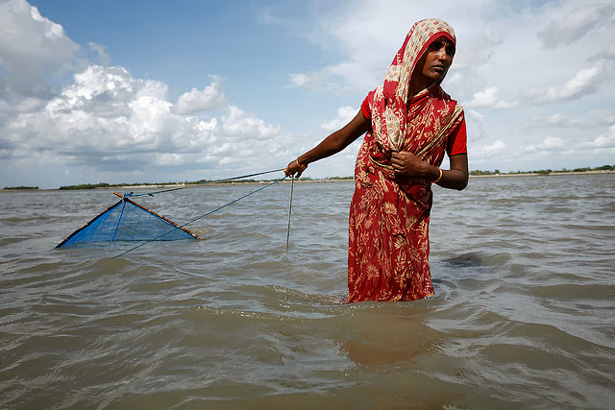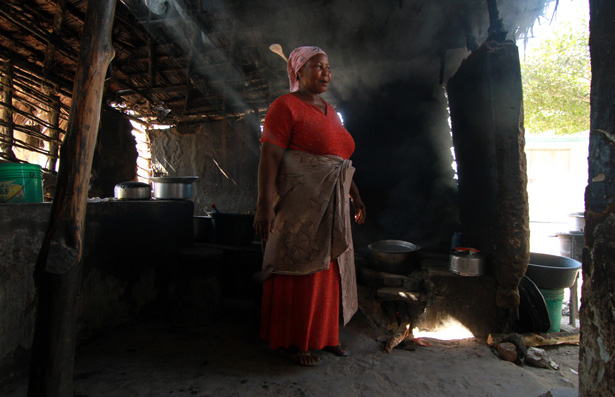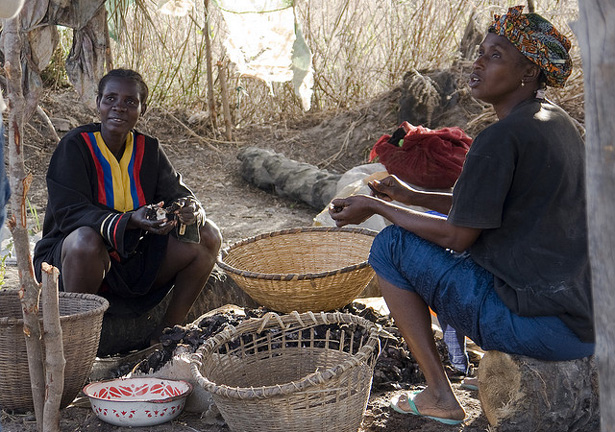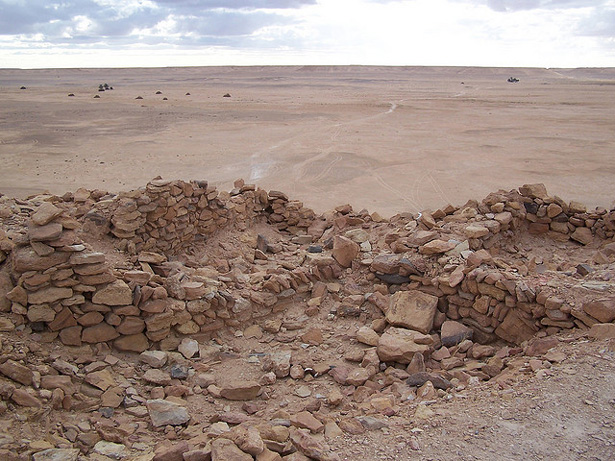-
Aligning Human and Ocean Health, Preventing Sudden Freshwater and Plant Habitat Decline
› “The size and growth of the human population is putting unprecedented pressure on natural resources,” reports the first major publication by the Global Partnership for Oceans. The World Bank launched the consortium of more than 140 government, NGO, and private sector groups at the Rio+20 UN Conference on Sustainable Development as a means to bring targeted investment to reverse ocean health decline and encourage sustainable development. On October 16, the Partnership’s Blue Ribbon Panel released Indispensable Ocean: Aligning Ocean Health and Human Well-Being, which encourages members to prioritize five principles: sustainable livelihoods, social equity, and food security; a healthy ocean; effective governance systems; long-term viability; and capacity building and innovation. Selection criteria for investments accompany each principle, including requirements like addressing problems of food affordability and access, demonstrating potential for improvements in human health, and building resilience to future conditions. “The good news is that we stand at a point in history where it is neither too late nor impossible to turn the tide of change that is currently sweeping across the ocean,” panel chair Ove Hoegh-Guldberg concludes.
“The size and growth of the human population is putting unprecedented pressure on natural resources,” reports the first major publication by the Global Partnership for Oceans. The World Bank launched the consortium of more than 140 government, NGO, and private sector groups at the Rio+20 UN Conference on Sustainable Development as a means to bring targeted investment to reverse ocean health decline and encourage sustainable development. On October 16, the Partnership’s Blue Ribbon Panel released Indispensable Ocean: Aligning Ocean Health and Human Well-Being, which encourages members to prioritize five principles: sustainable livelihoods, social equity, and food security; a healthy ocean; effective governance systems; long-term viability; and capacity building and innovation. Selection criteria for investments accompany each principle, including requirements like addressing problems of food affordability and access, demonstrating potential for improvements in human health, and building resilience to future conditions. “The good news is that we stand at a point in history where it is neither too late nor impossible to turn the tide of change that is currently sweeping across the ocean,” panel chair Ove Hoegh-Guldberg concludes. -
Amid Perfect Storm of Climate Challenges, Can Aquaculture Net Food Security Gains in Bangladesh?
›October 15, 2013 // By Jacob Glass
It is difficult to find a country feeling the negative impacts of climate change more severely than Bangladesh. Name any alarming, seemingly far off effect of a warming world being discussed in the halls of Washington or the summits of Copenhagen, and there is a good chance Bangladesh is experiencing it today. Flooding, drought, sea level rise, mass migration, and crushing poverty are exacerbated by a growing population and rapid urbanization. This perfect storm of climactic and demographic trends presents a looming crisis for Bangladesh, no more so than when it comes to food security.
-
10 Steps for Expanding the Population, Health, and Environment Approach
›
As their five-year funding cycle for supporting integrated population, health, and environment (PHE) programs around the world came to a close this fall, leaders from BALANCED Project – Building Actors and Leaders for Advancing Community Excellence in Development – came together at the Wilson Center to discuss lessons learned, best practices, and new ideas for the future.
-
Africa’s Demography, Environment, Security Challenges Entwined, Says Roger-Mark De Souza at Africa Center for Strategic Studies
›Sub-Saharan Africa is not only the fastest growing region of the world demographically but is also one of the most vulnerable to climate changes, according to many measures, and already facing natural resource scarcity in many areas. These factors combine with existing development challenges to create security threats that African governments and the United States should be concerned with, says ECSP Director Roger-Mark De Souza in a presentation for the Africa Center for Strategic Studies’ introductory course on demography and the environment at the National Defense University.
-
Coastal Resource Management, Family Planning Integration Build Resilience in Madagascar and The Gambia
›
Growing awareness of the connected challenges of natural resource management, economic growth, and human health has encouraged more integrated models of international development. The experience of two organizations – TRY Oyster Women’s Association, based in The Gambia, and Blue Ventures, based in Madagascar – demonstrates the success of a community-based approach to building resilience, enabling communities to bounce back from adversity and establish a long-term basis for development. [Video Below]
-
Mike Ives, Yale Environment 360
Vietnam’s Rice Boom Has Steep Environmental Costs for Mekong Delta
›July 17, 2013 // By Wilson Center Staff
The original version of this article, by Mike Ives, appeared on Yale Environment 360.
Phan Dinh Duc leans against yellow sacks of freshly harvested rice. It’s a warm spring evening in Vietnam’s Mekong Delta, and Duc, a local farmer, is waiting for traders to arrive by truck to purchase his produce and sell it on commodities markets. Beyond him lies a vast checkerboard of rice paddies, each filled with water and bordered by a network of canals and roughly 10-foot-high earthen dikes. They enable year-round rice cultivation in an area where, a half century ago, vast floodplains typically lay fallow for half the year and farmers planted one annual rice crop that grew in tandem with seasonal floods.
-
Dale Lewis on Combating Poaching in Zambia’s Luangwa Valley Through Integrated Development
›June 28, 2013 // By Jacob Glass“We did something very special for the community and the resources these farmers live with. We sat down with local leaders and promised to stop spending so much time caring about the elephants, and instead create a company that will try to address community needs,” said Dale Lewis in an interview at the Wilson Center. “The deal was they had to put down their snares and guns.”
-
Surprises Ahead? Population-Environment Dynamics and Tipping Points
›May 21, 2013 // By Laurie Mazur
Today, the Sahara Desert is a vast, nearly lifeless expanse of sand and rock. But ancient cave paintings tell of a time when it was fertile grassland and bands of human hunters chased aurochs and antelope.
Showing posts from category biodiversity.









